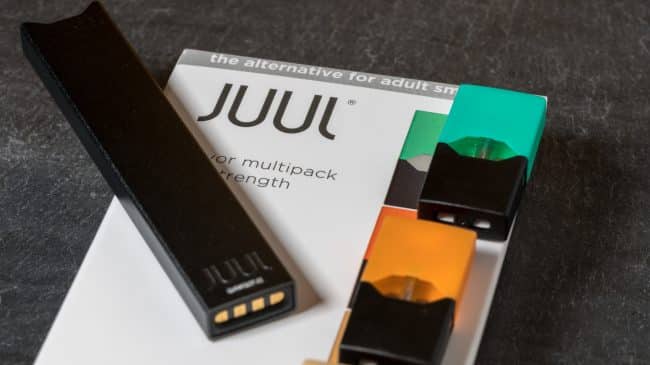Federal Updates
The House Oversight Subcommittee on Economic and Consumer Policy held two-day hearings investigating Juul’s role in the alleged “youth nicotine addiction epidemic.” On July 24, the committee heard from six witnesses, five of whom were vehemently hostile to Juul, claiming its marketing practices deliberately targeted minors and created a youth vaping epidemic. Democratic members slammed Juul for its social media campaigns and expressed skepticism of the concept of tobacco harm reduction.
Reps. Rashida Tlaib and Ayanna Pressley both claimed no further studies of e-cigarettes were necessary before taking action against Juul. Tlaib went so far as to claim Juul is “killing” people. Dr. Raymond Niaura of New York University cautioned against over-regulation, urging lawmakers to tackle the problem of youth vaping while ensuring adult access to safer nicotine alternatives. Reason’s Guy Bentley covered the proceedings for the Washington Examiner.
The second day of hearings featured Juul’s co-founder and Chief Product Officer James Monsees, Chief Administrative Officer Ashley Gould, and President of Campaign for Tobacco-Free Kids Matthew Myers. The original structure of the hearings was changed to two panels instead of one so Monsees would testify and be questioned solo. Juul received a mostly sympathetic hearing from Republicans but was again criticized by Democrats for its past social media campaigns, partnerships with educators, and nicotine strength.
On July 12, US Judge Paul Grimm issued his final ruling in American Academy of Pediatrics, et al. v. FDA. Grimm agreed with the Food and Drug Administration’s recommendation to the court and ordered the agency to impose a 10-month deadline for submission of premarket tobacco applications, with a one-year deadline for approvals.
State Updates
Writing for Reason.com, Bentley drew attention to San Francisco chief economist Ted Egan’s assessment that the city’s business community is not expected to lose out as a result of the prohibition of e-cigarettes thanks to increasing cigarette sales. National Review’s Kat Timpf followed up with an article and video on the subject.
Legislators in Massachusetts are attempting to ban the sale of flavored tobacco products, with an exemption for smoking bars. The state’s Attorney General Maura Healey, a vocal critic of Juul, testified in support of the ban at a hearing of the public health committee. If successful, Massachusetts would be the first state to ban flavored tobacco products.
Ohio Gov. Mike DeWine signed into law a 10 cents per milliliter e-cigarette tax, with a $125 license requirement for each vapor distributor effective October 1.
In New Jersey, Gov. Phil Murphy signed into law amended legislation which changed the state’s original 10 cents per milliliter tax on e-liquid to a 10 percent point-of-sale tax.
Science and Harm Reduction
Reason’s Jacob Sullum covered the controversy over research by Professor Stanton Glantz’s purporting to show that e-cigarette use can double the risk heart attacks. Glantz’s research was thoroughly debunked by tobacco researcher Brad Rodu and economist Nantaporn Plurphanswat.
A study from the Massachusetts General Hospital’s (MGH) Tobacco Research and Treatment Center shows smokers who use e-cigarettes daily were 77 percent more likely to have quit cigarettes after two years than non-e-cigarette users. “This finding suggests that smokers who use e-cigarettes to quit smoking need to use them regularly — every day — for these products to be most helpful,” said the study’s lead author, Sara Kalkhoran, MD.
On July 26, Illinois-based Heartland Institute released “Tobacco Harm Reduction 101: A Guidebook for Policymakers,” authored by Lindsey Stroud. The booklet presents a readable breakdown of the most relevant harm reduction issues— from relative risk to the dangers of e-cigarette taxation.
Additional Resources
Consumer Surplus in the FDA’s Tobacco Regulations
A Question of Taste: The Public Health Case for E-Cigarette Flavors
The World Health Organization’s Opposition to Tobacco Harm Reduction: A Threat to Public Health?
The Vapor Revolution: How Bottom-Up Innovation Is Saving Lives

